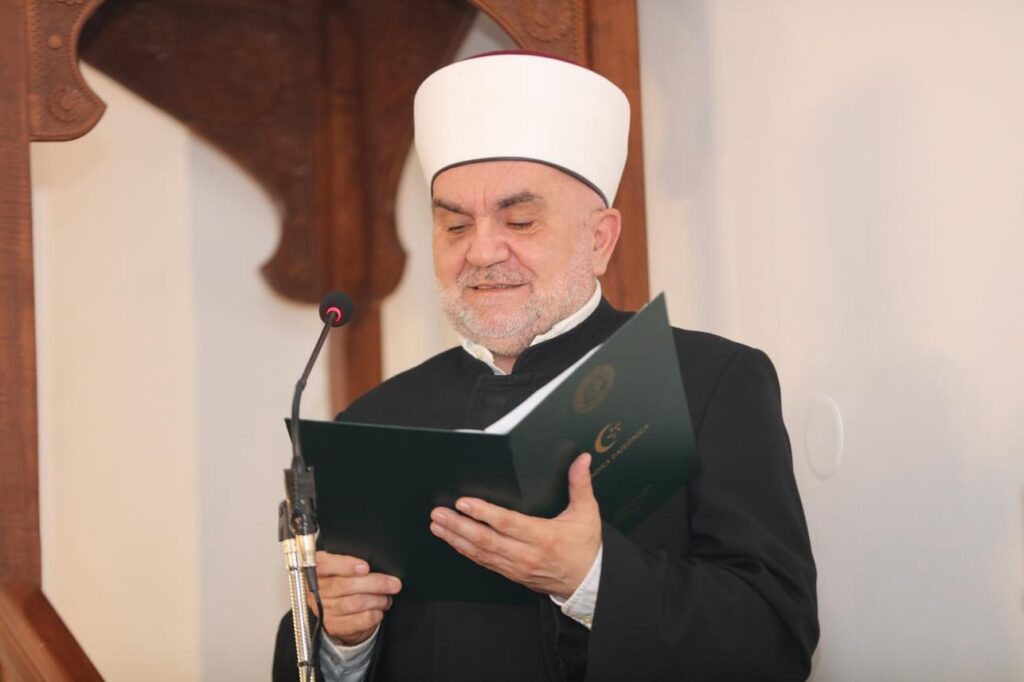Between past wounds and future hopes, a call for dignity and dialogue
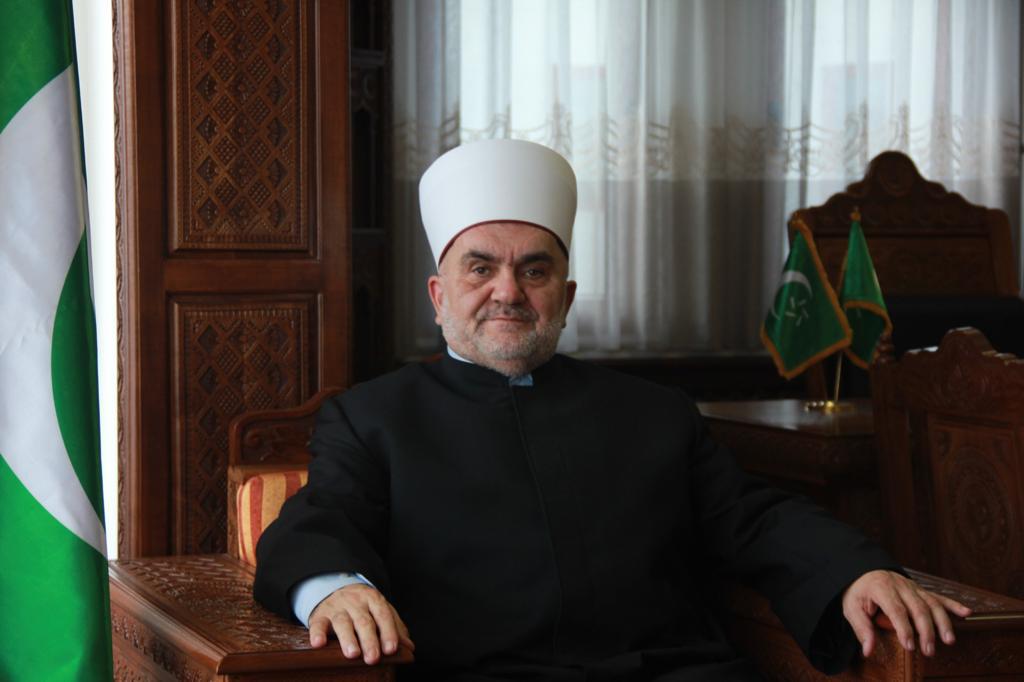
Interview by: Robert Čoban
In this wide-ranging conversation, Mufti Mevlud Dudić reflects on the experience of growing up as a Muslim in socialist Yugoslavia, the silent strength of Bosniak identity, the challenges of modern-day Sandžak, and the need for unity in the face of internal divisions. He speaks about the future of Bosnia and Herzegovina, the vital role of the diaspora, and why faith, education and dignity must remain central pillars for any society seeking peace and progress.
Primary school in Tutin, secondary school in Priština, university studies in Sarajevo, military service in Mostar… What was it like to be a Muslim in socialist Yugoslavia? Many say that Muslims/Bosniaks were the least religiously and nationally defined group in the SFRY (compared to Serbs, Croats, Albanians…). Is that true?
Living as a Muslim in socialist Yugoslavia meant carrying one’s faith in the heart while navigating a system that was not favourable to the public expression of religion. The Islamic identity was suppressed, and the national awareness of Bosniaks was still in its early stages.
Yet it was precisely that silence and marginalisation that shaped within us an inner strength and a sense of responsibility to later defend our faith and identity with conviction.
Claims that Bosniaks were the least nationally and religiously profiled do have a basis – it was the result of decades of institutional pressure, not the absence of inner belonging.
Our faith and identity never disappeared – they were simply waiting for the space to express themselves freely.
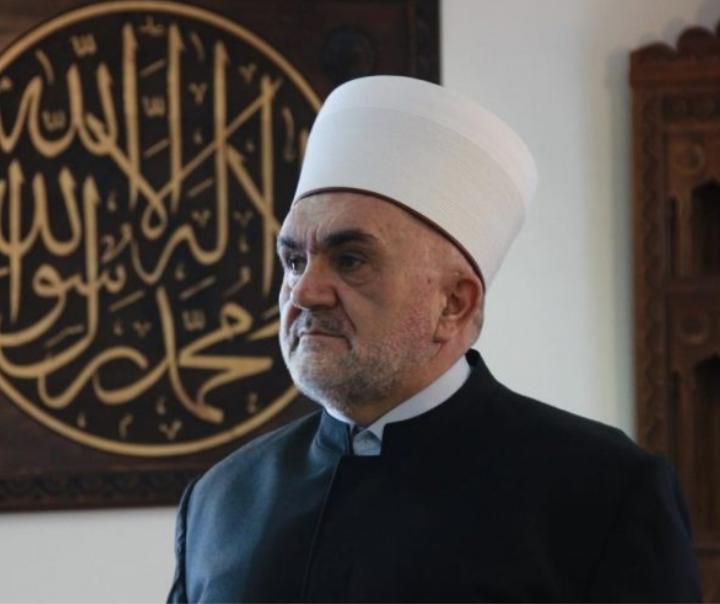
In 2006, you were appointed Dean of the Faculty of Islamic Studies, and in 2008, Rector of the International University in Novi Pazar, a position you held until 2014. From the perspective of someone who has worked in higher education, how do you view the current student protests and faculty blockades?
Student protests, if guided by reason, dialogue, and within the bounds of academic dignity, have their place in a democratic society. They reflect young people’s concern for their education, but also for the broader social landscape.
From the perspective of a former rector and long-time educator, I firmly believe that universities must remain spaces of free thought, but also of responsibility.
What concerns me is when students become tools of political calculation. Their energy should be directed towards knowledge, innovation, and positive change.
Our faith and identity never disappeared – they were simply waiting for the space to express themselves freely
In the 1990s, Sandžak avoided the bloodshed that befell your fellow countrymen in Bosnia and Herzegovina. Today, interethnic relations between Serbs and Bosniaks in Sandžak appear to be good, while tensions and divisions seem more pronounced among Bosniaks themselves.
Sandžak, thanks be to God, made it through the most difficult days of the 1990s without mass casualties, but that in no way means it was spared threats or attempts at destabilisation.
As for Bosnia and Herzegovina, what occurred there was a classic case of brutal aggression, strategically orchestrated and with devastating consequences for the Bosniak people. That was not a civil war, as some would like to portray it – it was genocide against the Bosniaks.
Today, interethnic relations in Sandžak appear more stable, which is certainly a positive development. However, the real challenges are internal. Divisions among Bosniaks themselves can be deeply harmful if we lose sight of the common values that unite us.
Differences in opinion must not become grounds for division. What we need is more mutual respect, unity, and a shared vision of the common good – only then can we preserve our identity and progress as a people.
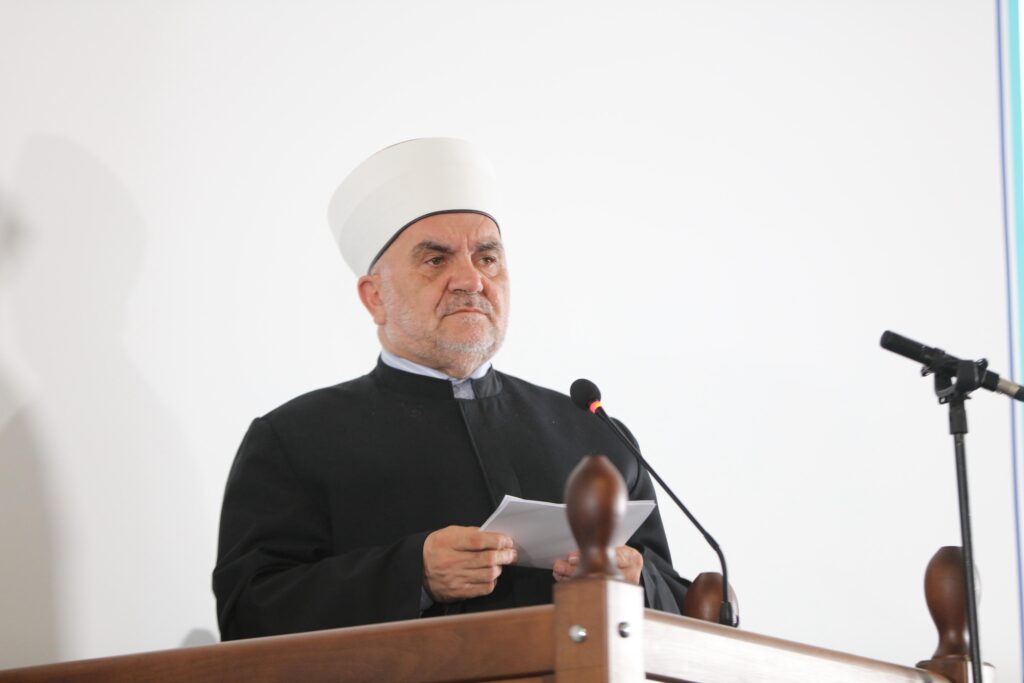 You are a member of several international Islamic bodies. Within those institutions, do you discuss the situation of Muslims around the world, terrorism, anti-Islamism, antisemitism, and other trends that have escalated since 7 October 2023?
You are a member of several international Islamic bodies. Within those institutions, do you discuss the situation of Muslims around the world, terrorism, anti-Islamism, antisemitism, and other trends that have escalated since 7 October 2023?
Absolutely. These bodies are not merely formal gatherings – they are spaces for serious and responsible discussion of the global challenges facing Muslims and the wider world.
Since 7 October, the world has witnessed a new wave of polarisation. In these discussions, I consistently advocate the position that Islam must remain a faith of peace, justice, and dignity.
We unequivocally condemn all forms of terrorism, regardless of who commits them, as well as all forms of Islamophobia, antisemitism, and racism.
The key lies in global responsibility and the consistent upholding of human rights.
What, in your view, is the future of Bosnia and Herzegovina?
Bosnia and Herzegovina is the country of all its citizens. It is a land with a soul, but also with deep wounds that have yet to heal. Its future depends on whether the forces that seek peace, justice and coexistence will prevail, or those that thrive on division.
As a Bosniak, I believe in Bosnia – not only as a country, but as a symbol of a people’s survival under the most difficult conditions.
If the international community plays its role fairly, and if domestic forces can rise above narrow-mindedness, Bosnia can become a model of how a complex society can grow in harmony.
We must not see each other as rivals in difference, but as partners in a shared future
You frequently visit members of the Bosniak diaspora abroad. To what extent do they remain connected to their homeland, and how can they contribute more to the progress of their countries – Serbia, Montenegro, Bosnia and Herzegovina…?
Our diaspora carries Sandžak in their hearts – I see it in every meeting, in every greeting of selam. Most of them did not leave by choice, but out of necessity.
The connection with the homeland remains strong, but it must be transformed into concrete contributions – through investment, education, media advocacy, and cultural engagement.
Our home countries must create an environment in which the diaspora feels welcome and valued – not as an ATM, but as a partner. Connecting the diaspora with institutions at home must become a strategic priority.
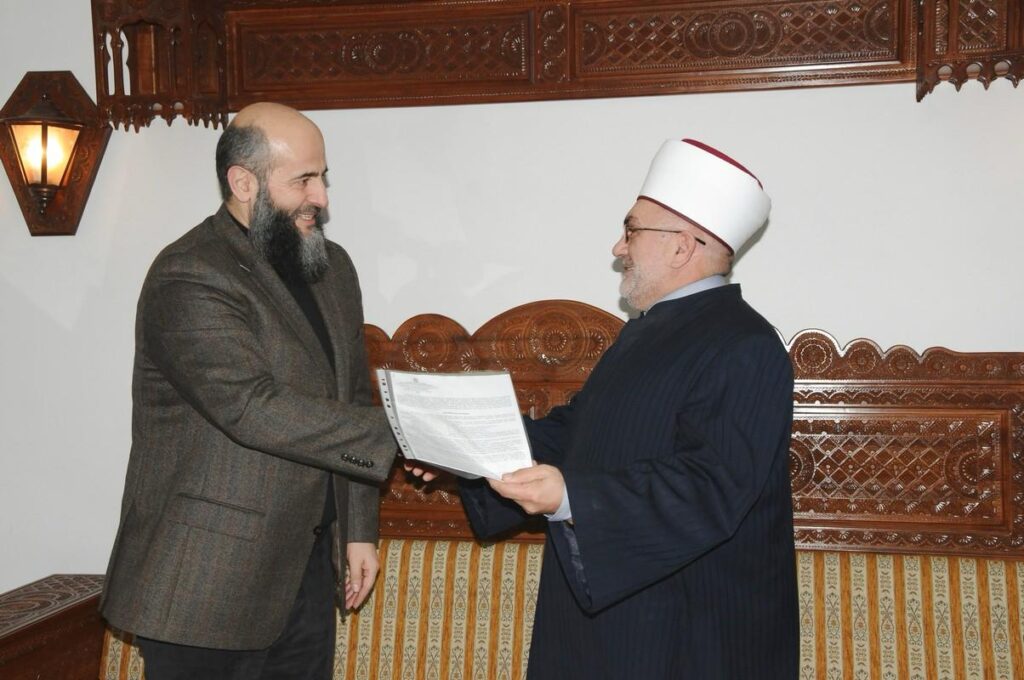
As a father of four children – two daughters and two sons – what do you tell them: is there a future in the country where they were born, or would you have no objection if they chose to live “out in the wide world”?
Every child is a gift from God and a sacred trust for a parent. I always tell my children to seek knowledge, to pursue values, to follow truth – wherever that may lead them.
At the same time, I teach them never to forget who they are, where they come from, and to whom they belong.
I would love for their future to be here, where their roots are, where they can contribute to their people and their faith. But if life takes them far away, let it be for a reason, with pride, and with the aim of one day returning as people of benefit – both to themselves and to the community.
